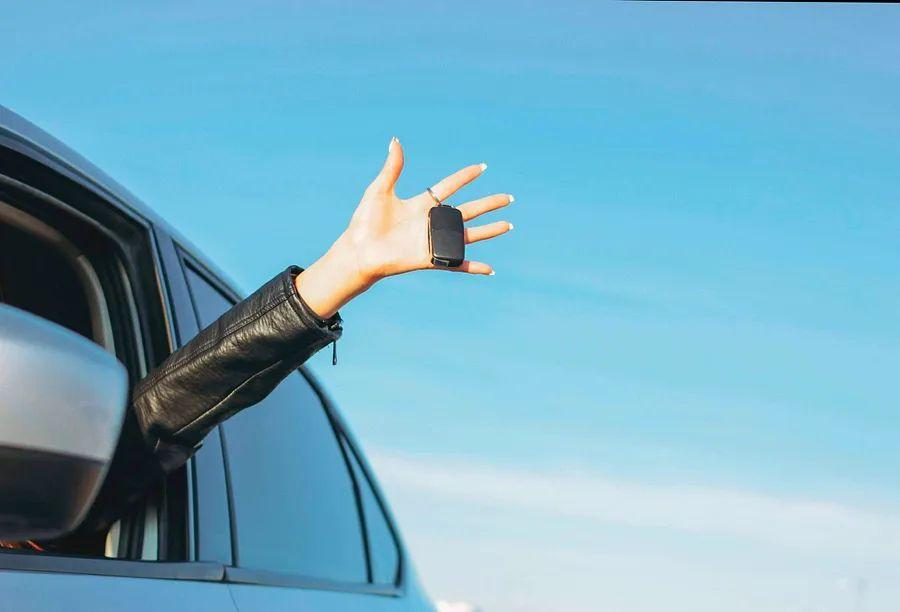Renting a car: What do you need to secure your rental?

Renting a vehicle typically takes under 10 minutes if you're prepared. We're here to guide you on what’s necessary to rent a car and the steps involved. Discover everything you need to know for a smooth rental experience.
How does the car rental process function?
If you’ve chosen to rent a car, whether for a long family road trip, a brief business visit, or simply to transport some items, it’s essential to understand the rental process for the best deal. At minimum, you should grasp how long renting a car takes, strategies for securing affordable rentals, how bookings and payments operate, the ins and outs of various insurance options, and the procedures for pick-ups and returns. Once you know what to look for, you can finalize your car rental in under 10 minutes.
What do you require to rent a vehicle?
One common question when renting a car is: What do I actually need to make this happen? To assist you, we've put together this essential checklist:
- A valid driver's license
- A current ID or passport
- Meet the minimum age requirement set by the car rental company (typically 21 in the U.S.)
- A credit card for the rental deposit (debit cards are often not accepted)
- Proof of valid liability insurance
Our advice for securing an affordable car rental
While Dinogo covers how to rent a car, you might still wonder how to snag a great deal. The key is to plan ahead. Booking at least two weeks in advance often yields the best prices, but it's wise to check a month prior and continue monitoring as your rental date approaches.
When traveling with companions, sharing driving responsibilities can enhance comfort, but adding extra drivers may incur additional costs. Check if your rental company allows a free second driver, or if you can designate a second driver for specific days rather than the whole trip.
You might also want to snag some car rental coupons from rental companies by subscribing to their newsletters and joining loyalty programs. These discounts often become available during major holidays or in the off-season.
The credit card policy for booking a rental car
It's important to note that renting a car typically requires a credit card, not a debit card. This is due to rental companies wanting to charge the deposit upfront and refund it upon the safe return of the vehicle. However, there are some exceptions to this policy, although they are rare. If you come across a rental agency that accepts debit cards, ensure you have sufficient funds to cover the entire rental cost upfront.
Check out our article on car rental payments for further details.



4 easy steps to rent a car using Dinogo
Dinogo scans numerous car rental companies simultaneously, allowing you to filter and compare results for your chosen destination and dates. You can browse for car rentals and evaluate prices all in one place, avoiding the hassle of multiple tabs and lengthy searches. Here’s how to secure an affordable car rental through Dinogo:
1. Choose your dates
First, you'll need to specify your pick-up and drop-off dates. While this is quite straightforward, being precise about the times you intend to pick up and drop off is crucial, as it influences the pricing and availability of vehicles. You can also opt for either a “same drop-off” or “different drop-off” location, making it easy to rent a car for a road trip and return it at your final stop.
2. Set your filters
3. Review your deal
When you're ready to finalize a specific itinerary, click on “view deal” to proceed. Depending on the offer, you may be able to complete your booking directly on the Dinogo website or be redirected to the rental company’s site. The price will remain the same in either case, but you might occasionally need to take this extra step.
4. Finalize your booking
As you wrap up your booking, you'll have the opportunity to revisit the details of your deal and add any extras you desire. Keep in mind that while you are reserving a category of car, the specific model you receive will depend on availability.


Search for rental cars
What should you bring when collecting your rental car?
As you prepare to pick up your rental vehicle, make sure to bring:
- A valid driver’s license
- Any additional driving permits you may need
- A second form of identification
- The payment method you used online if you booked ahead, or the payment method you plan to use at the counter
- Always double-check the terms and conditions to confirm everything one last time before completing your payment
The car rental company will provide a brief report on the vehicle’s condition, but consider taking photos before you leave for added peace of mind regarding any existing dents or scratches.

Tips for a seamless car rental return
When it’s time to return the vehicle, make sure to refill the gas if necessary, tidy up the interior, and return the keys on time as agreed. You don’t want to incur any extra charges for being late. Finally, obtain confirmation that the car was returned in the same condition as when you received it, along with a receipt.
- Plan your route ahead of time to ensure you arrive on schedule, or even a bit early
- Opt for the nearest gas station to the return location to refill the tank on your way
- Upon arrival, take photos of the car’s interior and exterior in case you need to contest any damage claims.
- Thoroughly check all compartments to ensure you’ve removed all your personal items.
- Make sure to return the car in the same condition you received it. If the vehicle is dirty upon return, the rental agency may charge extra fees for cleaning to a professional standard.
How to select the appropriate insurance when booking a rental car?
Typically, the main hurdle in renting a car revolves around insurance. Each rental comes with various options at differing prices, offering various levels of coverage. It can feel somewhat random choosing the right coverage, but opting for full insurance is usually the wisest choice. Here are the available types:
- Collision Damage Waiver (CDW). Car rental companies generally include CDW in the booking cost.
- Theft Protection (TP). This coverage means you won’t have to pay for a replacement if your rental car is stolen while in your possession.
- Loss Damage Waiver (LDW). This is a comprehensive term that encompasses both CDW and TP policies.
- Third Party Liability (TPL). This protects you against claims for death, injury, or damage to another person if you're found liable in an accident.
Regardless of the levels of car rental insurance you choose, keep in mind that most policies have an excess. This is the amount you will need to pay in addition to the insurance if you make a claim. These excess amounts can vary significantly depending on the rental company, vehicle, and insurance type, so always check before finalizing your rental.
For a comprehensive overview of insurance options, check out this Dinogo article on the various car rental insurance types.
Common inquiries regarding the car rental process

1

2

3

4

5
Evaluation :
5/5